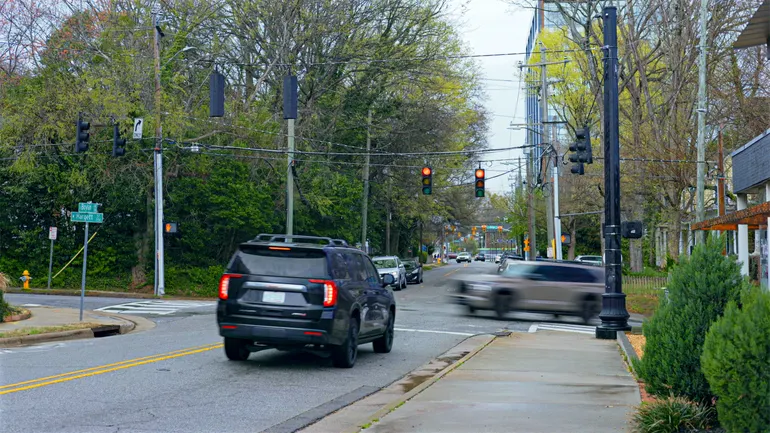Key Takeaways
- The North Carolina Department of Transportation has deployed 2,500 AI-based traffic signals across the state.
- Flow Labs’ software uses machine learning to improve traffic signal operations without real-time management.
- This initiative is the largest live deployment of its kind in the U.S., enhancing safety and traffic flow efficiency.
AI Traffic Signals Transforming North Carolina
The North Carolina Department of Transportation (NCDOT) has implemented a groundbreaking deployment of 2,500 AI-based traffic signals at various intersections statewide. This initiative, disclosed in a July 7 news release from Flow Labs, aims to enhance traffic management through advanced technology.
The software developed by Flow Labs employs machine learning algorithms and leverages data from connected vehicles to continuously monitor intersection conditions. Although these signals are not designed for real-time traffic management, the system allows traffic engineers to eliminate the need for extensive field studies and infrastructure changes. With insights drawn from actual traffic patterns, the signals can significantly improve operational performance.
This move comes as cities and states increasingly adopt innovative technologies to optimize traffic flow, enhance pedestrian and cyclist safety, and minimize collision rates. Examples include automated traffic enforcement measures for speeding and red-light violations, as well as smart signals that prioritize pedestrians crossing the road.
In late 2023, the Federal Highway Administration revised federal regulations to improve traffic signs and signals, focusing on protections for vulnerable road users. North Carolina’s venture stands out as the largest live statewide deployment of AI traffic signal software in the United States. Jatish Patel, CEO of Flow Labs, emphasized that “North Carolina didn’t just invest in a new tool — they embraced a new model for traffic operations.”
Flow Labs has also collaborated with the Florida Department of Transportation on combining existing traffic-detection data with connected vehicle information from TomTom. This integration enables optimized traffic signal operation, congestion reduction, and safety enhancements. Similarly, Florida has partnered with NoTraffic, an AI-driven traffic management system that combines smart sensors with software to efficiently manage traffic flow across all transportation modes, ensuring bicycles and pedestrians are considered in traffic dynamics.
A report from the Transportation Research Board for 2024 recommended that the U.S. Department of Transportation create a data-driven road safety research agenda, guided by an independent committee to prioritize safety issues. This month, the Department requested state and metropolitan planning organizations to identify critical locations along arterial roads that pose significant safety concerns. The inclusion of connected vehicle data could assist in addressing these identified issues effectively, according to Ahmed Darrat, chief product officer at INRIX, a firm that specializes in traffic data analytics.
As cities embrace technology to address modern traffic challenges, North Carolina’s deployment of AI-based traffic signals sets a precedent for future infrastructural and operational improvements across the nation. By incorporating data-driven decision-making in traffic management, the state aims to foster a safer and more efficient transportation environment.
The content above is a summary. For more details, see the source article.















